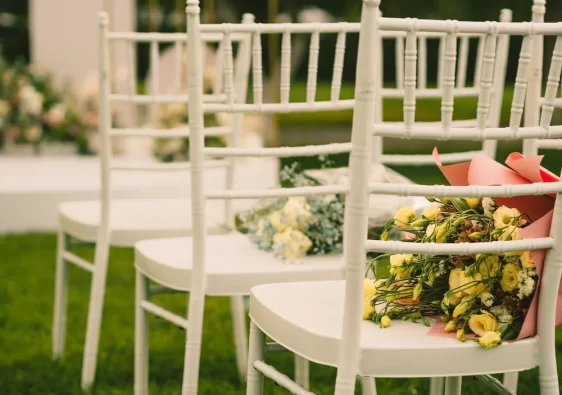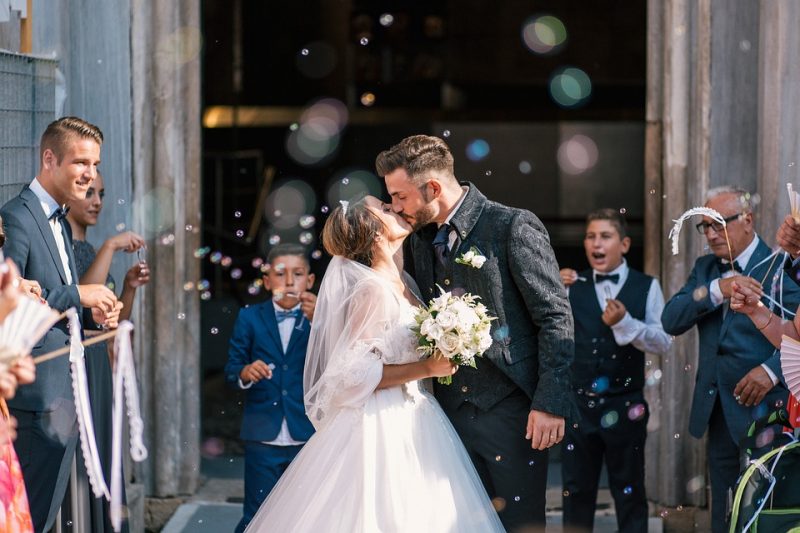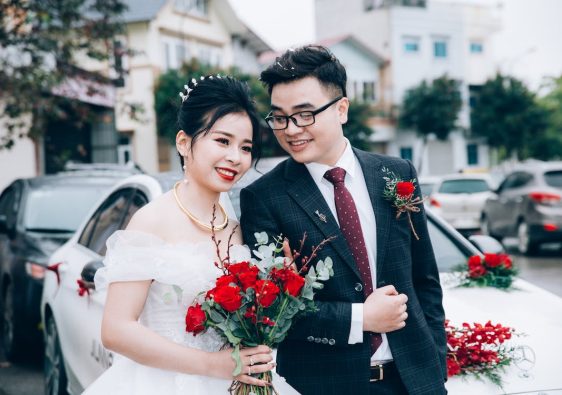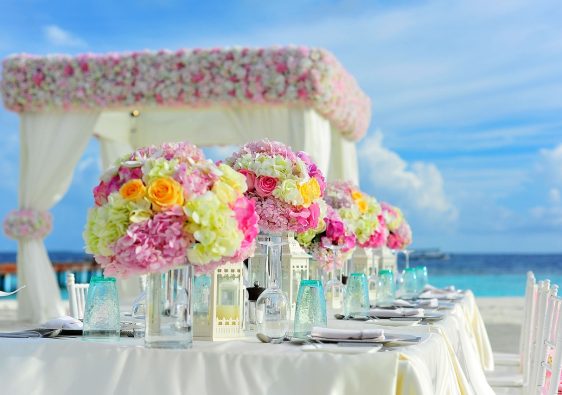The particularity of the Algerian wedding is that it takes place at the home of both the future husband and the future wife. Unlike in neighbouring countries such as Morocco or Tunisia, the man is not left out most of the time, and he participates in the party as much as his bride.
Also, respecting the purest tradition, the families do not call upon a restaurant or a caterer to prepare the food for the ceremonies during an Algerian wedding. The family and the close relations do all the cooking.
Algerian wedding: engagement or khotbah
The future spouses are first engaged. The future husband must ask his family for the hand of his future wife:
– He can then be accompanied by his parents, older brother, and older sister.
– Once the two families have reached an agreement, the bride-to-be may be given a promise ring, a bracelet, a necklace, or gold earrings.
– Once the engagement is celebrated, her future husband will give her an engagement ring.
Traditional Algerian wedding preparations
An Algerian wedding can differ depending on the region where it is celebrated. Many rites are present and take place according to a precise order. Generally, it is a big party that can last 3 to 4 days or even a week.
Preparation of the meals
If the wedding is celebrated traditionally, the meals are made by hand. The preparation lasts two days and is divided as follows:
– The men of both families sacrifice a sheep or a cow depending on the number of guests.
– The women of both families prepare the side dishes, pastries, and cakes.
The Hammam
The third day is dedicated to relaxation and beauty rituals. The bride goes there accompanied by women and older women who ensure that the tradition is respected.
Religious songs and prayers will accompany the care.
The ceremony of El Khouara
The bride’s mother organizes a party in her home for her friends and relatives.
The bride is paraded in different traditional outfits during this ceremony, and the family distributes sugared almonds, drinks, and pastries.
Good to know: the higher the social level of the family, the more different dresses the bride will have to wear during her parade.
Henna meal or “el taâliq
On the 5th day, the women of the groom’s family take care of the henna decoration of the bride as a sign of welcome.
The bride-to-be wears a dress called “charb ezdaf” and composed of :
– A sleeveless floral dress reaching the ankles, also called “binouar”.
– Embroidery in the form of flowers among the most delicate.
On the same day, the women of the husband’s family give the bride a white suitcase or “jehaz”. This may contain petticoats, underwear, soap, and perfume.
The suitcase contents are kept secret and will only be revealed during the henna application. After that, the guests will have to offer gifts to the bride.
Good to know: the groom’s family can stay with the bride’s family during this night.
Meeting of the two spouses during an Algerian wedding
Meeting with the family-in-law
The bride will finally go to her in-laws after having her hair and make-up done.
It is the groom’s turn to pick up his future wife, accompanied by a procession composed of:
– Cars decorated with flowers and ribbons whose horns will alert the neighbourhood.
– All the girls and women of the groom’s family.
Good to know: the groom will be dressed entirely in white this day.
The bride is then taken to her in-laws’ house, but her parents cannot accompany her according to tradition. Before arriving at her in-laws’ home, the couple will have the opportunity to have a photo session at a place that is close to their hearts.
The bride is welcomed by her mother-in-law with milk and dates, signs of fertility, and good understanding between the couple.
That same evening, a second henna ceremony is held for the groom, who will be given gifts.
Last day of the wedding
A meal is given in honour of the bride’s parents, who have come to see their daughter. Traditionally, the bride does not do any housework or leave her house for the week following the wedding.
Good to know: the couple will then go to an undisclosed location for their honeymoon.
Civil and religious marriage
The religious marriage or “fatha” is celebrated by an imam at the home of the bride’s parents. The ceremony takes place as follows:
– He asks for the bride’s agreement that the union can take place.
– The imam makes a speech about the conditions of marriage and the importance of love.
– The bride and groom recite the first chapter of the Quran.
Once the religious union is official, civil marriage can be celebrated.
Hope you’ve found this post helpful and enjoyable. Feel free to share your thoughts in the comments below.




